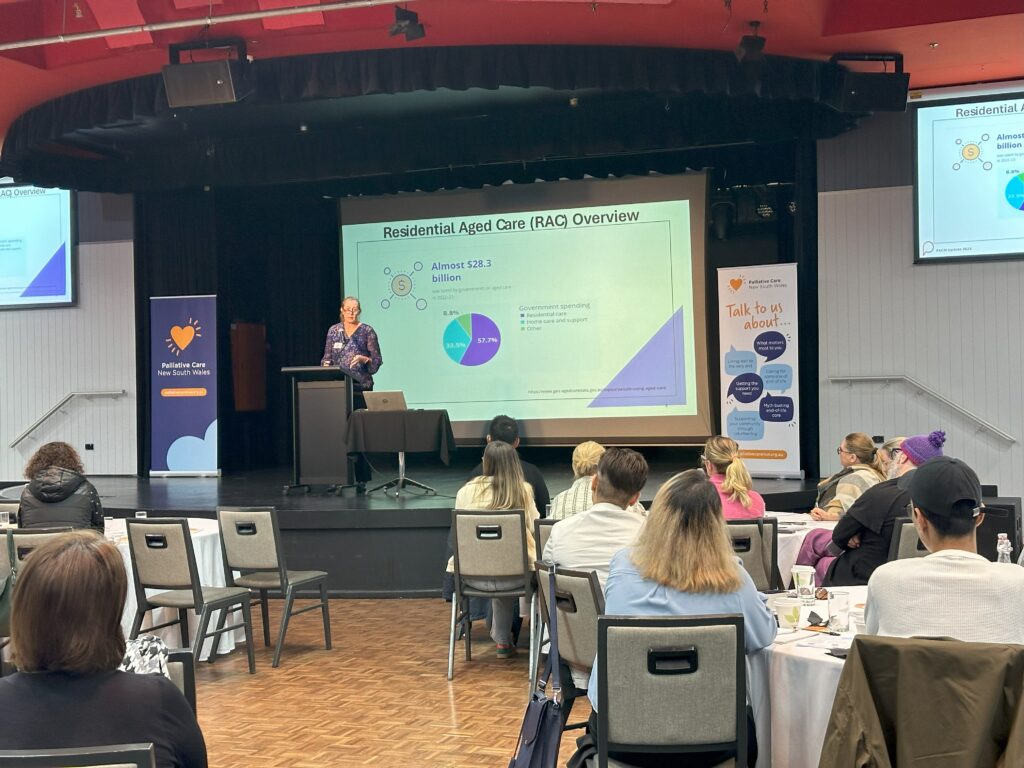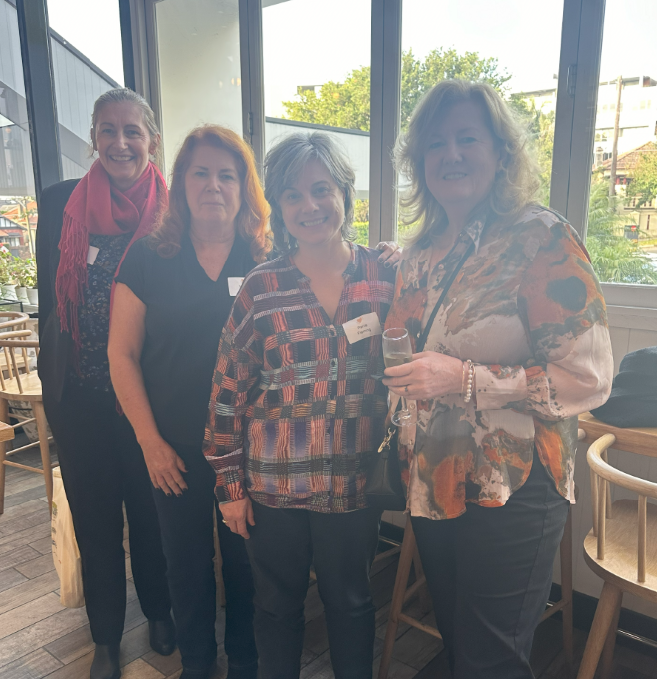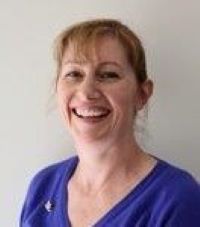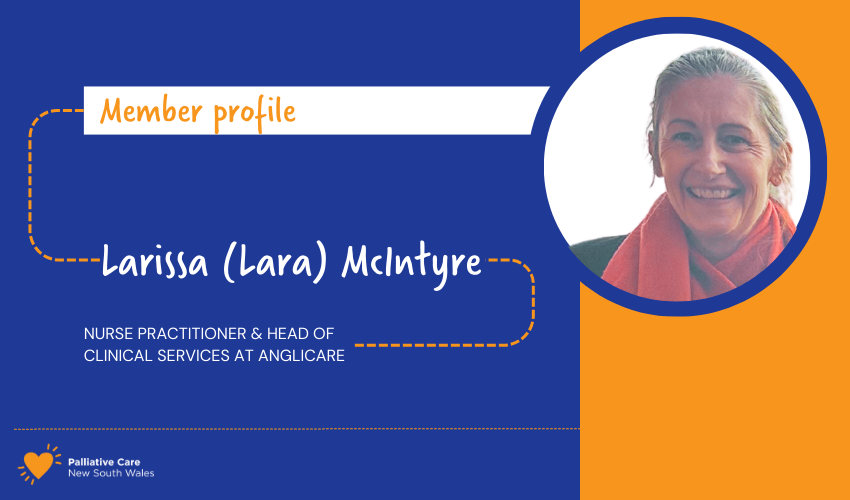Please note: This member profile was created prior to Lara’s position change to Catholic Healthcare as NP and Senior Palliative Care Lead.
Larissa McIntyre is a highly valued member of PCNSW since 2010 and serves as the Chair of the Palliative Aged Care Network, a professional network we strongly support.
Lara, as she prefers to be called, works as a Nurse Practitioner (NP) in residential aged care. Her scope of practice is palliative and aged care, working with a team of Palliative Care Clinical Nurse Consultants (CNC), Dementia CNC and Grief Counsellors.
What are the important components of your role in the position that you have?
Staying clinically current and being able to communicate effectively with Residents, families and teams and being open to the differing conversations and opinions. Whilst working with the teams to help them to recognise that all our Residents are in fact, palliative, they all have life-limiting illness, otherwise they would not be with us. And that being palliative does not equate to imminent death and dying but living well until you die.
The delivery of education about palliative care and end of life is also a big part of the role, busting myths, talking about death and dying, helping people to understand that life is not always reflective of their favourite TV medical drama. This is where ACP comes into its own and is such a valuable conversation when done well.
We only get one chance to get it right so it’s so important that the teams know what to do to ensure a good death, that they have received education, have the resources available to them, know who to call if they need help. We are there to support the families, not to harm them, they will be experiencing enough pain when their loved one dies – so it’s vital that we do not cause any additional harm.
“The delivery of education about palliative care and end of life is also a big part of the role, busting myths, talking about death and dying, helping people to understand that life is not always reflective of their favourite TV medical drama.”

What personal or professional skills are important for you to be able to do your job well?
The more time I spend in palliative care the more I come to understand and respect the lived experience. Even though they may be painful memories and experiences, they can be helpful in really being able to connect with people and to walk with them during the last stage of their life.
I think you need to be comfortable with death to work in this space. It’s important to be able to have a conversation with yourself to get comfortable with death, explore your values, your experiences, what do you know about death? How do you feel about dying? What is important to you?
Once you can express these comfortably then you are ready to go and start conversations with others, walk with others.
What’s the best part of what you do?
It’s being with the Residents, their families, being able to listen, provide advice and to work with them to ensure a peaceful and dignified death with no surprises. Especially taking the family through the process of what to expect – to work through the process, to cover the bases so the death is not a ‘surprise” but expected, planed for, everything in place – so there is calm not chaos. And hopefully a move towards acceptance.
This means the ACP has been reviewed, a Palliative Care Conference attended, medications no longer needed ceased, teams knowing what to look for as the signs and symptoms of dying become evident, having anticipatory medications to ensure those symptoms can be manged, ongoing communication with the family and support during the last days of life.
What do you find the most challenging?
About 50% of my role is reviewing pain management regimes and working with Residents, families and teams to improve the management of chronic pain – there is no silver bullet, and it isn’t always about the medications, but it does have a significant effect upon a person’s quality of life and well-being. So being able to contribute to even just a slight improvement is very rewarding.
Too many people just assume that getting old means getting pain and having to live with it. That is not the case It’s important for people to know that there is something that can be done – it may not take it away completely, but it is possible to improve your quality of life and to live well.
What made you choose Palliative Care as a career?
I was incredibly close to my beautiful Nanny (Molly) who was also a nurse as was my darling Mum (Jackie). Both have died of cancer.
When I was growing up my Nanny would come and stay for long periods of time and then go again. On one visit she was diagnosed with cancer. In the mid-80’s there were not many options for treatment or care. Nanny was allergic to Morphine and had little to no pain relief – she never complained, but I watched her waste away, watched her pain. Nanny would “secretly’ self-medicate with sherry, so we couldn’t see, a couple “Vegemite” glasses would be enough for her to get some relief. This has never left me.
Even though my Nanny’s journey through her cancer was painful and as a 14-year old, horrible to witness; it has played a significant role in who I am and what I do. For many years I kept it locked away – too painful to recall. The sadness and hopelessness overwhelming at times.
When I worked in Intensive Care, I had other experiences where peoples’ wishes’ were ignored and all efforts were made to “bring them back” only to eventually die an undignified death on the end of a ventilator. The compounding of these memories, my own desire to “make it better”, to do “better” put me on the palliative care path.
I cared for my Mum at home when she died – it was her wish to die at home. My Mum’s cancer journey and her death whilst heart wrenchingly sad – was so different from my Nanny’s. In a way it completed my journey and gave me a new skill, capability: listening, really listening to the person in front of me. That was my Mum’s last gift. And set me on new path to be a better advocate, to really listen, to hear what people really wanted, to be a voice for those who sometimes don’t have one or if they do are not heard.
I find it a privilege to be part of the end of someone’s life, in particular, an older person, who has actually had the experience of a long life, an experience not many get. Working in aged care enables me to advocate, to work with teams and families to ensure they are peaceful and dignified when they leave this world.
“We only get one chance to get it right so it’s so important that the teams know what to do to ensure a good death, that they have received education, have the resources available to them, know who to call if they need help. We are there to support the families”

What do you think are the opportunities for Palliative Care in the next 2 – 3 years?
To work with community to improve death literacy and to replace the fear of death and dying with the acceptance that this is anormal part of life. As we are being born our bodies go through a process during birth to start our time on this planet; we go through another process when it’s time to die and leave this planet. It is natural.
However, sadly for some it is abrupt and traumatic, and I really feel for those people and their loved ones who have experienced an untimely death of a loved one. That trauma can be devastating – so how do we create a space for them?There was no preparation, no good-bye but immense grief – how can we do better to support them?
What do you think are the biggest challenges for the sector in the next 2 – 3 years?
We have an ageing population, increasing co-morbidities and complexities, reduced workforce, increasing expectationsaround place of death. How will this be managed?
Also seeing changes in cancer diagnosis with an increase in younger people being diagnosed – again pressure of resourcesand services. How do we best use what we have? How can we bring the systems together and work more collaboratively?
Finally, how do we find equity in access to services and resources? This has been an ongoing issue: is there where technology comes into its own? Whilst remembering that we do is uniquely human and requiring skilled and compassionate humans.
What’s the best piece of advice you’ve ever been given?
To do your best.
Book, Podcast, TV Streaming or Movie – what would you pick when you have some down time and do you have a recommendation to share?
The recent Bridgeton series is amazing: music, colour, costumes, stories. are fantastic. Queen Charlotte was my favourite -the ending is just so poignant.
One of the best books I have ever read and resonates with me was Atul Gawande Being Mortal.: Medicine and What Matters in the End. There is also a podcast series O BEING in June 2024 they had Atul Gawande – On Mortality and Meaning.

“PCNSW has provided great support to Palliative Aged Care Network (PACN) which came about in 2011/12 and continue to support this valuable network of health professionals.
I have also over the years attended and enjoyed and grown from attending the PCNSW Conferences.”


